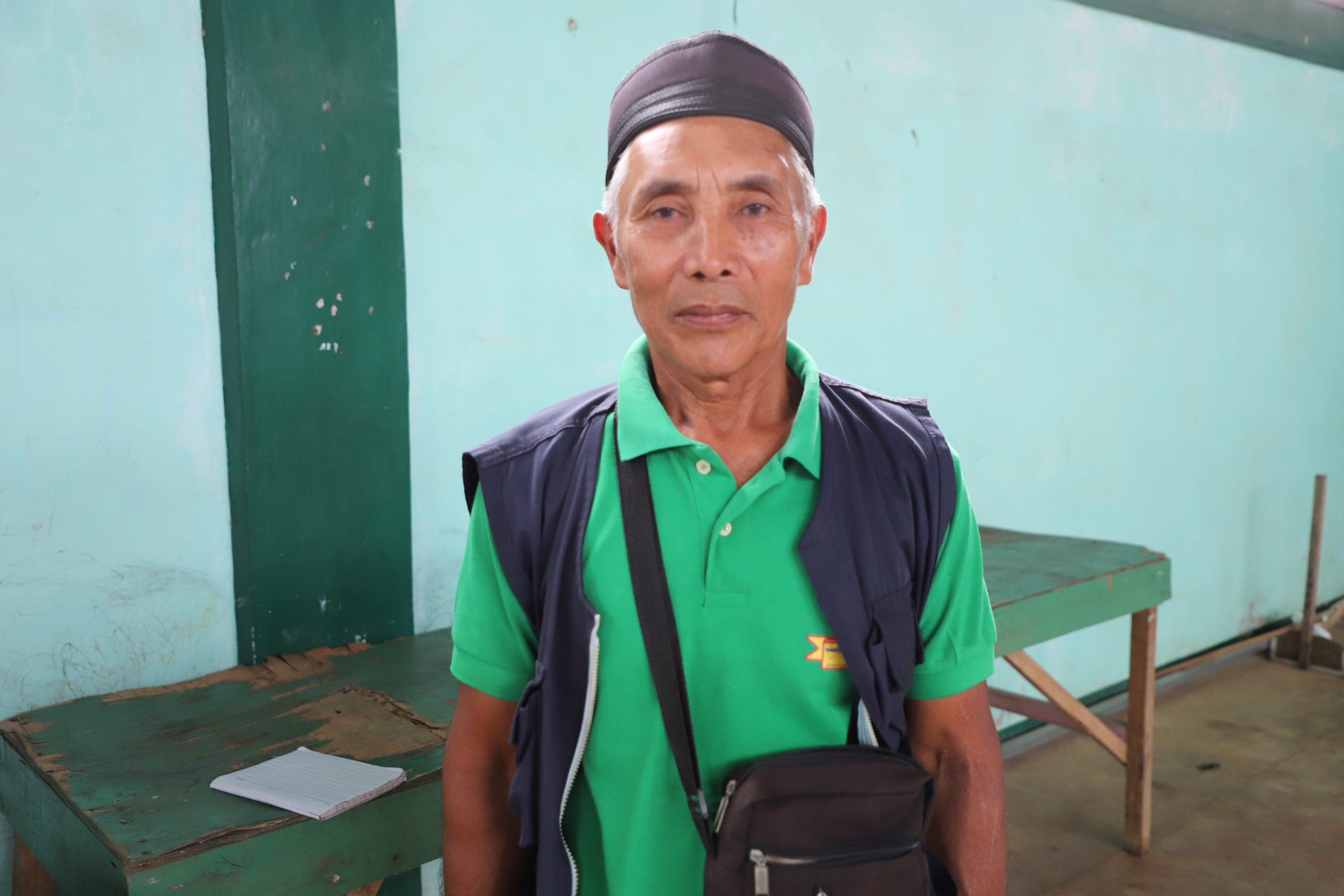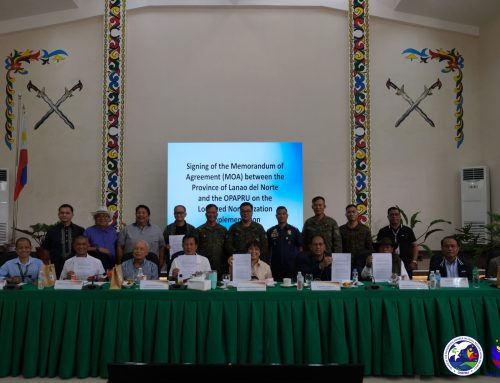PANTAO-RAGAT, LANAO DEL NORTE — “Ngayon, pwede na kami lumabas, [at] pumunta ng palengke. Malaya [na] kaming maghanap ng hanapbuhay.”
This was shared by Guro (not his real name), a former Moro Islamic Liberation Front (MILF) combatant, when asked how his life and that of his family have changed after he underwent the decommissioning process in 2019 together with his comrades.
Guro, a father of nine, has been an MILF member since 1975. He was only 15 years-old when he picked up a rifle and joined the Moro group’s fight for self-determination.
“Mahirap ‘yung pamumuhay kasi laging nasa gubat at nasa-sacrifice ‘yung pag aaral ng aking mga anak. Laging akong nakikipag giyera,” he shared.
Guro recalled growing up during the war when one’s chances for survival were very low. Even the search for food became a matter of life and death.
Despite the aura of fearlessness that he exudes, Guro’s biggest fear was not being able to provide for the basic needs of family when he was away, and not knowing when he will be able to finally reunite with them.
“Sadyang mahirap ‘nung mga panahon na iyon, lalo na ‘nung Martial Law kasi hindi ko naatupag pagkain ng aking pamilya,” he said.
At the height of the MILF’s battles with government forces, Guro felt that there was no end in sight to their armed struggle.
But following the signing of the Comprehensive Agreement on the Bangsamoro (CAB) between the Government of the Philippine and MILF in 2014, he regained a sense of hope that it was possible for him and his family to have a bright future.
“Napag-iwanan man kami sa edukasyon dahil sa pinaglalaban namin. Pero mas maayos [na] ang buhay namin ngayon. Mas maganda [na] ngayon,” Guro said.
The grizzled warrior, who is now 65 years old, has never felt as content and secure as he is right now, as he can spend his time attending to the needs of his family.
Decommissioning is one of the key aspects of the Annex on Normalization of the CAB, which aims to help former MILF combatants reintegrate themselves into mainstream society as peaceful and productive individuals.
Decommissioning is not only the laying down of arms, but more importantly, the provision of socio-economic interventions to the former combatants, their families and communities.
For Guro, he had decided to return to lay down his arms primarily because he wanted to give his family a peaceful and better life.
“Pangarap ko na sa tulong ng gobyerno ay makapagtapos ng pag-aaral ‘yung anak ko na isa. Para maayos ang kinabukasan niya,” he said.
To date, a total of 24,844 former MILF combatants have been decommissioned, while 4,625 of their weapons have been decommissioned under phases one, two and three.
To date, nearly Php 2.4 billion in transitional cash assistance have been provided to them.
This financial assistance is in addition to the government’s other socioeconomic projects worth nearly Php 750 million, which include social protection, capacity development, livelihood and employment assistance, and small-scale infrastructure programs.
“Nagpapasalamat kami kasi mas maayos na ang buhay naming ngaun. Sa mga kasamahan kong decombatants, tayo sana ay sumuporta sa mga programs para sa atin at ating mga pamilya,” Guro said.
“Kung hindi man natin makamtan yung reward ngayon, ang Allah SWT ang magpaparangal sa atin sa Yawmul Qiyamah (hereafter),” he added.
When asked what peace was to him, Guro smiled and said: “Peace tano kalilintad o pamikiran.” (Peace is [having] peace of mind.) END












